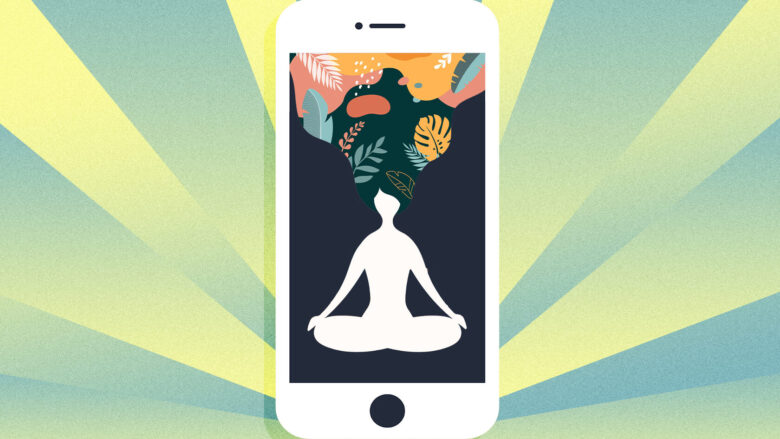In the vast realm of human relationships, an often-overlooked factor can disrupt the harmony of our connections: mental health. Its impact on relationships is profound and frequently misunderstood. This article seeks to illuminate this intricate intersection, guiding you through the challenges of relationships influenced by mental health concerns.
The early stages of a relationship often radiate with love and happiness. However, as time progresses, reality sets in, and mental health issues may emerge. It’s crucial to recognize and utilize available mental health services to assist individuals and couples through these challenges.
Contents
- The Invisible Impact of Mental Health
- Understanding the Role of Mental Health in Relationships
- Navigating the Turbulent Waters
- Building Bridges, Not Walls
- The Essence of Empathy
- Seeking Help: A Sign of Strength, Not Weakness
- The Journey Forward
- The Stigma Surrounding Mental Health in Relationships
- The Influence of External Factors
- Communication: The Key to Understanding
- The Importance of Self-Care
- Educating Yourself: A Step Towards Empathy
- The Role of Therapy in Strengthening Relationships
- Setting Boundaries: A Necessity, Not a Luxury
- The Impact of External Support
- Resources for Actionable Steps
The Invisible Impact of Mental Health
Mental health issues, though often silent, can manifest in various ways, such as mood swings, irritability, or reluctance to socialize, all of which can deeply affect relationships. Consider a person with social anxiety who might avoid large family gatherings. Their partner may observe a pattern of declined event invitations or last-minute cancellations, leading to feelings of exclusion or misunderstanding. Early recognition of these signs can help couples address the root causes, preserving the relationship’s integrity. Recognizing these subtle signs is just the beginning. To truly understand the impact of mental health on relationships, we must delve deeper into individual histories and traumas.

Source: pillarsofwellness.ca
Understanding the Role of Mental Health in Relationships
Individual histories, traumas, and coping mechanisms can drastically alter relationship dynamics when combined with mental health challenges. A partner with a traumatic childhood might grapple with trust issues, occasionally appearing distant. Another with OCD could have specific routines that baffle their partner. Identifying these dynamics enables couples to address challenges with empathy and understanding, fostering a harmonious relationship. While understanding individual dynamics is crucial, it’s equally important to know how to navigate the challenges they present in a relationship.
Relationships, like ships, require direction, especially when faced with mental health obstacles. Addressing these issues might entail clear communication, therapy, or fostering an environment for open dialogue. It’s essential to equip the relationship with tools to navigate challenges rather than merely avoiding them. For instance, in a relationship where one partner has bipolar disorder, unpredictable mood swings can hinder communication. Pursuing therapy and promoting open dialogue can bolster resilience, ensuring the relationship withstands adversity. However, merely identifying challenges isn’t enough. The real strength of a relationship lies in how couples respond to these challenges.
Building Bridges, Not Walls
When confronted with mental health challenges, withdrawing can amplify feelings of isolation and misunderstanding. Couples should prioritize building bridges over erecting walls, which might mean regular conversations, fostering open dialogue, or seeking couples therapy. Effective communication ensures mutual understanding and support, deepening the bond. Open dialogue is a step in the right direction, but true connection requires something deeper: empathy.

Source: npr.org
The Essence of Empathy
Empathy goes beyond understanding; it’s genuinely feeling your partner’s experiences. Especially in the context of mental health challenges, empathy is paramount. For instance, when one partner grieves, the other might feel lost in offering support. Sometimes, merely being present and listening without judgment can be more therapeutic than any advice. Empathy demands active engagement, and by harnessing this innate ability, couples can deepen their emotional connection. While empathy lays the foundation for understanding, sometimes professional help is needed to navigate the complexities of mental health in relationships.
Seeking Help: A Sign of Strength, Not Weakness
Contrary to the misconception that therapy signifies weakness, it truly represents resilience for both individuals and couples. Therapeutic avenues, whether individual counseling, couples therapy, or support groups, provide invaluable insights. For example, a couple hesitant to seek therapy due to past traumas might discover that it offers insights that fortify their bond. By pursuing help, couples better equip themselves to navigate the nuances of mental health in relationships.
The Journey Forward
Every relationship, with its peaks and valleys, encounters distinct challenges when intertwined with mental health. With the right support and understanding, couples can traverse these challenges, reinforcing their bond. This journey becomes one of mutual discovery and growth, turning challenges into opportunities for deeper connection. However, even with the right tools and mindset, external societal perceptions can pose additional challenges. The journey of understanding and addressing mental health in relationships is deeply personal, external societal perceptions can often add another layer of complexity.

Source: promisesbehavioralhealth
The Stigma Surrounding Mental Health in Relationships
The societal stigma associated with mental health can pose significant obstacles in relationships. Partners may fear being labeled, misunderstood, or even ostracized. This fear often leads to suppressed emotions, hidden struggles, and a reluctance to seek help. Over time, this silence can create a rift between partners, with misunderstandings escalating and trust diminishing. For instance, one partner diagnosed with PTSD might fear judgment and hide their struggles. This silence can lead to misunderstandings. By actively challenging these stigmas, couples can foster an environment of understanding and support. Partners must educate themselves, engage in open dialogue, and seek external support. Doing so, couples can break down barriers, ensuring that mental health challenges are addressed with empathy and understanding rather than judgment and fear.
The Influence of External Factors
Life’s daily stresses, whether from work, finances, or societal expectations, can intensify mental health challenges within a relationship. For example, a partner facing redundancy might grapple with heightened anxiety, leading to increased tension at home.
Similarly, societal norms and expectations about roles within a relationship can add undue pressure, exacerbating underlying mental health issues. A study on the American Orthodox Jewish population during the pandemic highlighted that faith may promote resilience, especially during crises, suggesting that religious coping mechanisms can influence mental health during external crises like pandemics. (Source: Journal of Religion and Health (2020) 59:2288–2301)
Furthermore, couples must recognize these external stressors and address them proactively. This might involve seeking financial counseling, setting clear work-life boundaries, or engaging in couples therapy. Addressing these external factors head-on can create a supportive environment, ensuring that external pressures don’t compound existing mental health challenges. While external factors can add strain, the heart of any relationship lies in how partners communicate with each other.
Communication: The Key to Understanding
Effective communication is vital, especially amidst the complexities of mental health. It’s not merely about verbal exchanges but truly understanding and empathizing with each other’s perspectives.
For instance, a partner grappling with mental health challenges might struggle to articulate their feelings, leading to misunderstandings. Conversely, the other partner might need help responding or offering support. Setting aside regular times for open conversations, using empathetic language, and practicing active listening can bridge these communication gaps. By fostering open communication, couples can ensure that both partners feel heard, understood, and supported, creating a strong foundation for addressing mental health challenges.

Source: global.com
The Importance of Self-Care
While it’s essential, supporting a partner with mental health challenges can also be emotionally taxing. It’s crucial to remember the importance of self-care. Just as flight safety guidelines emphasize securing your oxygen mask before assisting others in relationships, ensuring your well-being is pivotal to supporting your partner effectively. Self-care can take various forms, ranging from engaging in hobbies and practicing mindfulness to seeking individual therapy.
Also, supporting a partner with severe anxiety can be emotionally draining. Engaging in self-care activities, like meditation or journaling, can help maintain emotional and mental well-being, ensuring effective support for the partner. By prioritizing self-care, individuals ensure they’re emotionally and mentally equipped to support their partners, fostering a balanced and supportive relationship dynamic. While self-care is vital, understanding your partner’s struggles requires a proactive approach to education.
Educating Yourself: A Step Towards Empathy
Understanding your partner’s mental health challenges begins with education. The more informed you are, the better equipped you’ll be to offer genuine support. For instance, after discovering that her partner has been diagnosed with ADHD, a woman decides to educate herself about the condition. She reads books, attends workshops, and even joins online forums dedicated to ADHD.
Research also emphasizes the importance of mental health training. A study assessing Public Safety Personnel’s (PSP) perceptions found that mental health training can influence attitudes towards seeking support, highlighting the significance of continuous learning and training in understanding mental health challenges.
Through research, you can gain a deeper understanding of the partner’s behaviors, challenges, and needs. This knowledge helps support your partner more effectively and deepens the bond as this demonstrates genuine care and commitment. Armed with knowledge, couples can then seek specialized guidance, such as therapy, to further strengthen their bond.
The Role of Therapy in Strengthening Relationships
Therapy provides a structured environment for couples to address and navigate mental health challenges. A trained therapist can offer insights, tools, and coping strategies tailored to a couple’s unique dynamics. Whether learning effective communication techniques, addressing past traumas, or understanding the root causes of certain behaviors, therapy can be a transformative experience. Let’s delve deeper into the multifaceted roles therapy plays in fortifying relationships:
- Evidence-Based Approaches: Many therapeutic methods, such as Cognitive Behavioral Therapy (CBT) and Emotionally Focused Therapy (EFT), have been scientifically validated to improve relationship dynamics and address individual mental health concerns.
- Safe Space for Expression: Therapy offers a neutral and confidential environment where both partners can express their feelings, fears, and concerns without judgment.
- Skill Development: Therapists often provide couples with practical skills to manage conflicts, improve communication, and enhance emotional intimacy.
- Increased Self-Awareness: Individual therapy can help partners understand their triggers, emotional responses, and behavioral patterns, leading to healthier interactions within the relationship.
- External Perspective: A therapist can offer an objective viewpoint, helping couples see issues from a different angle and suggesting alternative approaches to problems.
- Addressing Underlying Issues: Beyond immediate concerns, therapy can delve into deeper individual or shared traumas and experiences that may be affecting the relationship.
- Homework and Exercises: Many therapists provide couples with exercises to practice outside of sessions, reinforcing the skills learned during therapy and promoting continuous growth.
- Support in Crisis: In times of significant stress or upheaval, couples therapy can provide immediate tools and strategies to navigate the crisis and prevent further relationship strain.
- Preventative Measures: Even in the absence of overt issues, couples therapy can be a proactive way to strengthen the relationship, ensuring that both partners have the tools to address future challenges.
- Rebuilding Trust: For relationships damaged by breaches of trust, such as infidelity, therapy can offer a structured path towards healing and rebuilding.
Therapy isn’t just a remedy for relationship ailments; it’s a proactive measure to ensure the health and longevity of the bond. Engaging in therapy, be it individual or couples counseling, signifies a commitment to understanding, healing, and growing together. It turns challenges into opportunities for strengthening the relationship bond. While therapy provides tools and insights, setting personal boundaries is equally crucial for maintaining a healthy relationship dynamic.

Source: psychologytoday.com
Setting Boundaries: A Necessity, Not a Luxury
Boundaries play a pivotal role in ensuring that both partners feel safe, respected, and valued. This might involve setting limits on certain topics of discussion, designating safe spaces for open dialogue, or even establishing routines that prioritize mental well-being.
For example, consider a couple where one partner has experienced trauma in the past. Certain topics or situations might trigger distressing memories or emotions. Recognizing this, the couple establishes a ‘safe word’ system. Whenever a topic or situation becomes too overwhelming, the affected partner can use the safe word, signaling the need to pause or change the subject. This system allows both partners to navigate conversations with care, ensuring that both feel safe and respected.
The Impact of External Support
While the couple forms the heart of the relationship, external support systems play a crucial role in navigating mental health challenges. Friends and family can offer a listening ear, provide respite, or even share their experiences.
Additionally, specific life stages or events can exacerbate mental health challenges in relationships. For instance, a systematic review highlighted the significant associations between low social support and the risk of depression, anxiety, and self-harm during pregnancy. This emphasizes the importance of social support during such critical periods. Support groups can also provide a sense of community, helping couples realize they’re not alone in their journey. Couples can find additional strength and resources to address challenges head-on by leveraging these external support systems.
Resources for Actionable Steps
Understanding mental health’s role in relationships is just the beginning. Taking actionable steps towards betterment is crucial. Here’s a list of resources that can guide you and your partner on this journey:

Source: success.com
Books:
- Understanding Love
The 5 Love Languages: Understand how to communicate love in ways that resonate with your partner.
- Emotional Bonds & Attachments
Hold Me Tight: Seven Conversations for a Lifetime of Love: Delve into the science of emotional bonds and attachment.
- Specific Mental Health Challenges
Loving Someone with Bipolar Disorder: A guide for understanding and navigating the challenges of bipolar disorder in relationships.
Helplines:
- Crisis Support
National Suicide Prevention Lifeline: 1-800-273-TALK (1-800-273-8255)
- Mental and Substance Use Disorders
SAMHSA’s National Helpline: 1-800-662-HELP (1-800-662-4357): For individuals and families facing mental and/or substance use disorders.
Online Therapy Platforms:
- BetterHelp: An online platform connecting individuals with licensed therapists.
- Talkspace: Offers online therapy with professional counselors and therapists.
- 7 Cups: Connects users to caring listeners for emotional support.
Support Groups:
- NAMI (National Alliance on Mental Illness): Offers local support groups for individuals and families.
- Mental Health America: Provides a list of support groups for various mental health conditions.
Websites and Forums:
- PsychCentral: Contains articles, blogs, and forums discussing various mental health topics.
- Anxiety and Depression Association of America (ADAA): Offers resources, webinars, and a support community.
Apps for Mental Well-being:
- Headspace: Guided meditations to help reduce stress and improve mental well-being.
- Calm: Offers meditation, sleep stories, and breathing exercises.
- Moodpath: An interactive mental health screening and improvement tool.
Remember, every individual and relationship is unique. It’s essential to find resources and strategies that resonate with your specific needs and challenges. Seeking professional guidance, such as from a therapist or counselor, can also provide personalized recommendations and support.

Source: workingeeks.com
Conclusion
Understanding the interplay between mental health and relationships is an ongoing journey. It demands patience, understanding, and commitment to growth. By embracing open communication, seeking support, and prioritizing self-care, couples can navigate challenges and grow stronger together. Remember, facing challenges together strengthens the bond and deepens the connection.
